by Andy Gheorghiu
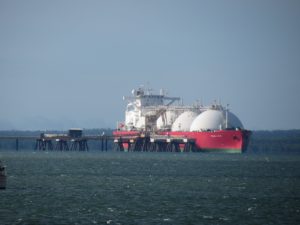 In our “Fracking & LNG Ghosts of Gas Addicted Germany (Part I and II)“ blogs we’ve already highlighted the destructive and hyprocritical climate policy of Germany.
In our “Fracking & LNG Ghosts of Gas Addicted Germany (Part I and II)“ blogs we’ve already highlighted the destructive and hyprocritical climate policy of Germany.
The country is a big supporter of the controversial and unneeded Nord Stream 2 pipeline that will pour another 55 billion cubic metres (bcm) of gas into Central and Eastern Europe, finally locking the European Union into the Russian fossil addiction.
At the same time, the German government is also wasting €1.2 billion of taxpayers public money on the Southern Gas Corridor, the mega pipeline that the EU Commission subsidizes in the hope to be able to by-pass Russian gas-transit networks.
The German government is also providing a budget of €4.75 million for fracking research projects, welcomes propopals for the construction of the first LNG terminals in Germany, and wants to invest more public money in a fracked gas LNG terminal in Nova Scotia, Canada. German business market analysts have clearly highlighted the stranded assets related to these projects and have called them “foreseable investment ruins“.
According to the project report and financial analysis paper of Laurentian Bank Securities Equity Research, the company Pieridae Energy Limited is “On Track to Become Canada’s First Major LNG Exporter”.
Pieridae wants to build the LNG Goldboro terminal in Nova Scotia to export fracked shale gas from Canada (Alberta, British Colombia, Quebec, New Brunswick and Sable Island) and Pennsylvania (the Marcellus Shale). According to the Alberta Energy Regulator, gas production from shale (Duvernay Formation) is expected to continue to grow – particulary driven by the presence of wet gas (natural gas liquids) that have increasingly become the focus of the petrochemical industry that uses the fracked wet gas (i.e. ethane) component to produce plastics and petrochemicals. The American Chemistry Council has highlighted in April 2018 that major chemical investment is linked to shale gas, with 325 projects in the US alone cumulatively valued at $194 billlion in capital investment announced since 2010. Pennsylvania could indeed become the world’s new petrochemical hub.
It’s worth mentioning in this context that petrochemical giant Dow Chemical, a developer for fracking proppants, and Yara, the so-called “Exxons of agriculture“ are the foreseeable major buyers of LNG in the cases of the proposed terminals at Stade and Brunsbüttel. This is again highlighting the growing hunger of the petrochemical industry for cheap fracked gas and it shows that these projects have nothing to do with the energy supply for German households.
Pieradae states that the two most obvious areas that provide readily available gas for the Goldboro facility are western Canada and the Marcellus shale in Pennsylvania.The company has entered into a 20-year LNG sales agreement on a take-or-pay basis of 4.8 million metric tonnes per annum (6.7 bcm) with German Uniper, the company that’s a financial investor of the Nord Stream 2 pipeline and is also involved in the Southern Gas Corridor project. Uniper’s partner Pieridae has qualified for US$3.1 billion under the United Loan Guarantee (Garantien für Ungebundene Finanzkredite or UFK) programme of the German government.
Confronted with the fact that Germany has a fracking moratorium for shale gas in place but nonethless intends to invest in importing fracked gas from the U.S. and Canada, the German government answered that a) fracked gas could help diversify the gas supply of Germany and Europe and b) Germany has issued only a “Letter of Interest” to financially support the project, but this doesn’t equal a proper loan yet.
But the fun factor doesn’t end here. Pieridae (which is trying to get the money together for this not only enviromentally but also economically very risky project) announced in August 2018 the appointment of the German state-owned KfW IPEX-Bank “as an adviser in assisting it to finalize a multibillion USD untied loan guarantee from the German federal government under its UFK program (Garantien für ungebundene Finanzkredite).“ In July 2018, Pieridae apparently requested the German government increase the amount of the guarantee from the US$3.1 billion.
Initiated by Gastivists Berlin, German groups – together with Food & Water Europe – have now teamed up with Canadian activists and NGOs and have urged the German Federal Environmental and Energy Ministries in a joint open letter not to award Pieridae the financial guarantee it would need to succeed with its climate-hostile LNG Goldboro terminal. The letter highlights that several crucial points make clear that the financial guarantee is not in the interest of the economy, the climate or the environment, clearly stating that this investment not only undermines Germany’s intended role as an international pioneer in tackling the climate crisis but also has negative impacts for local communities in the affected regions in Canada and the U.S.
The Canadian Nova Scotia Fracking Resource and Action Coalition (NOFRAC) and the New Brunswick Anti-Shale Gas Alliance have underlined the trans-atlantic joint demands by sending follow-up letters to the German government describing these concerns, and the big opposition in Canada against fracking and against this project in particular.
Together, we will join forces across the Atlantic to stop this madness. Collectively, we won’t allow the German government to greenwash itself with the claim that it has banned fracking while at the same time supporting fracking gas LNG projects that make no sense whatsoever with public money.
That’s not how we are rightfully expecting Germany to play the role of the climate hero it could be. We all know that 4th biggest world economy can and must do much better than that.
Links:
Open letter to German government (EN, DE, FR)
Letter from NOFRAC and Guysborough Communities Coalition
Letter from New Brunswick Anti-Shale Gas Alliance
______________________________________________________________________________
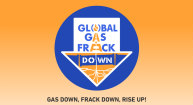 Don’t forget to join the Global Day of Action (13th October) against fossil fuels, fracking, petrochemicals & plastics – Gas Down Frack Down Rise Up! Join the movement and sign up on
Don’t forget to join the Global Day of Action (13th October) against fossil fuels, fracking, petrochemicals & plastics – Gas Down Frack Down Rise Up! Join the movement and sign up on
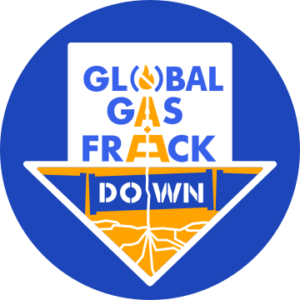
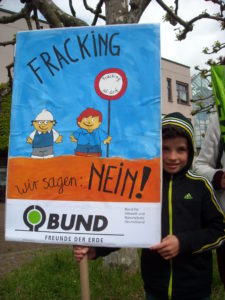 We call it the The Global Gasdown Frackdown Day of Action.
We call it the The Global Gasdown Frackdown Day of Action.


 In our “Fracking & LNG Ghosts of Gas Addicted Germany (
In our “Fracking & LNG Ghosts of Gas Addicted Germany ( Don’t forget to join the Global Day of Action (13th October) against fossil fuels, fracking, petrochemicals & plastics – Gas Down Frack Down Rise Up!
Don’t forget to join the Global Day of Action (13th October) against fossil fuels, fracking, petrochemicals & plastics – Gas Down Frack Down Rise Up!  On 30 August, what was likely the largest mass civil disobedience action against gas extraction in the Netherlands to date came to an end after protesters
On 30 August, what was likely the largest mass civil disobedience action against gas extraction in the Netherlands to date came to an end after protesters 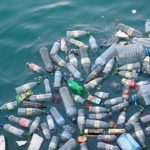
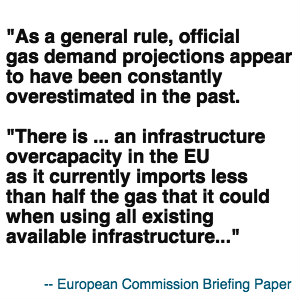 A while ago, the European Commission published another
A while ago, the European Commission published another 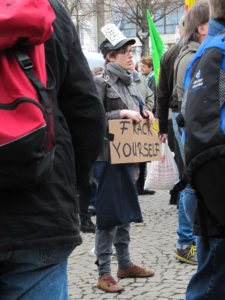 Many people think that Germany has banned fracking but this is not completely true. And even the existing partial ban is at risk at the moment.
Many people think that Germany has banned fracking but this is not completely true. And even the existing partial ban is at risk at the moment.